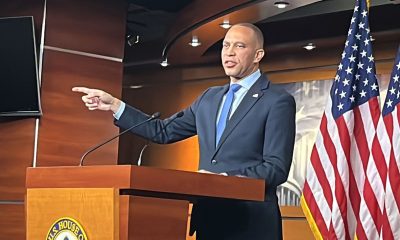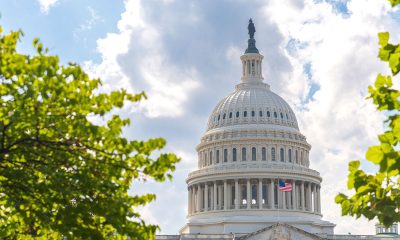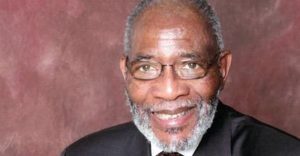Black History
COMMENTARY: Origin of Black Politics in America
CHICAGO CRUSADER — Since the end of the Civil War in 1865 electoral politics has played a dominant role in the African American Community
Since the end of the Civil War in 1865, when African Americans were granted the right to vote, through the 15th Amendment in 1868, electoral politics has played a dominant role in the African American Community. African Americans have been participating in electoral politics for 154 years.
With the North winning the Civil War and chattel slavery being abolished, under the Emancipation Proclamation, and as we were given the right to vote, through the 15th Amendment, many Black leaders began to feel that maybe conditions would change in America. Therefore, most leaders started urging Black people to join the Republican Party, the Party of Lincoln.
This period in history from 1863 to 1876 is called “Reconstruction” and the first time Black people began to participate vigorously in electoral politics.
During the late 1860s and early 1870s, many African Americans were elected to Congress and an African American Senator, Hiram Revels, was elected from Mississippi. The Political Abolition Party and the Equal Rights Party ran Frederick Douglass for Vice President of the United States in 1856 and 1872.
Many Black colleges were established during this period through the land grant act that called for public education at the college level. Because of these responses on the part of the government many African American leaders felt that Black people’s situation could be resolved in America through governmental intervention and effective voting.
The presidential election of 1876 brought into focus the real agendas of the white ruled Republican and Democratic Parties. Rutherford B. Hayes was the Republican candidate who was supposed to be representing the vital interests of the North and Samuel Tilden was the Democratic candidate alleging to represent the real interests of the South.
In a very close election, the South actually won the popular vote; however, during the Electoral College proceedings, neither candidate received a majority of electoral votes. The Southern representatives made it clear that their interests did not include winning the presidency of the United States, but reclaiming full autonomy for the South. Through much wrangling, a decision was made by those present that later became known as the “Great Compromise.”
The Compromise of 1876 resulted in the Republican Hayes being announced the winner of the presidential election and both sides received what they basically wanted in the first place. Obviously neither side was interested in the liberation of Black people. The emerging northern industrialists wanted entry and new markets into the South and the southern plantation owners wanted their land back.
The net result for African Americans was the repealing of some of the voting rights laws that immediately began to wipe out Black elected officials and made it virtually impossible for Black people to vote in the South again until the passage of the Voting Rights Act of 1964.
Through all of this, Black leaders, and those African Americans who voted, remained loyal to the Republican Party even though their voting rights had been sold down the drain.
As pointed out, after Reconstruction, many Black people still remained loyal to the Republican Party and tried to fight for change within it just as some Black people are still fighting for changes in the Democratic Party today. This loyalty lasted until the 1930s when African Americans began to switch their allegiance to the Democratic Party and the so-called “New Deal Era” of the Roosevelt Administration. Essentially, since the 1930s to the present, African Americans have voted for Democratic Party candidates in large measure.
There have been a small group of African Americans who have historically called for a Black Political Party in response to the domination of the white ruled Republican and Democratic Parties. In fact, in 1972 in Gary, Indiana 10,000 Black people participated in the National Black Political Convention in which the call for the development of a Black Independent Political Party was a prominent discussion at this meeting. However, the allegiance of Black elected officials to the Democratic Party prevented any real movement toward the development of a Black Political Party or independent Black Political Organization. Instead, a strategy of the third force inside the Democratic Party was developed.
In Chicago, for example, since the death of the late Mayor Harold Washington, African American leaders have been divided over strategy and tactics to continue the movement for Black political empowerment. This trend can be observed around the country.
There is no question that we need our own political party, or at best, our own political organization. But this must occur in a manner that truly represents the best interests of the African American Community.
Dr. Conrad Worrill, Professor Emeritus, Carruthers Center for Inner City Studies (CCICS). New office location is at 1809 E. 71st Street, Chicago, Illinois 60649, 773-592-2598. Email: c-worrill@neiu.edu Website: www.drconradworrill.com.
This article originally appeared in the Chicago Crusader.
Activism
Oakland Post: Week of November 26 – December 2, 2025
The printed Weekly Edition of the Oakland Post: Week of November 26 – December 2, 2025

To enlarge your view of this issue, use the slider, magnifying glass icon or full page icon in the lower right corner of the browser window.
Activism
Oakland Post: Week of November 19 – 25, 2025
The printed Weekly Edition of the Oakland Post: Week of November 19 – 25, 2025

To enlarge your view of this issue, use the slider, magnifying glass icon or full page icon in the lower right corner of the browser window.
Activism
IN MEMORIAM: William ‘Bill’ Patterson, 94
Bill devoted his life to public service and education. In 1971, he became the founding director for the Peralta Community College Foundation, he also became an administrator for Oakland Parks and Recreation overseeing 23 recreation centers, the Oakland Zoo, Children’s Fairyland, Lake Merritt, and the Henry J. Kaiser Convention Center.

William “Bill” Patterson, 94, of Little Rock, Arkansas, passed away peacefully on October 21, 2025, at his home in Oakland, CA. He was born on May 19, 1931, to Marie Childress Patterson and William Benjamin Patterson in Little Rock, Arkansas. He graduated from Dunbar High School and traveled to Oakland, California, in 1948. William Patterson graduated from San Francisco State University, earning both graduate and undergraduate degrees. He married Euradell “Dell” Patterson in 1961. Bill lovingly took care of his wife, Dell, until she died in 2020.
Bill devoted his life to public service and education. In 1971, he became the founding director for the Peralta Community College Foundation, he also became an administrator for Oakland Parks and Recreation overseeing 23 recreation centers, the Oakland Zoo, Children’s Fairyland, Lake Merritt, and the Henry J. Kaiser Convention Center.
He served on the boards of Oakland’s Urban Strategies Council, the Oakland Public Ethics Commission, and the Oakland Workforce Development Board.
He was a three-term president of the Oakland branch of the NAACP.
Bill was initiated in the Gamma Alpha chapter of Kappa Alpha Psi Fraternity.
In 1997 Bill was appointed to the East Bay Utility District Board of Directors. William Patterson was the first African American Board President and served the board for 27 years.
Bill’s impact reached far beyond his various important and impactful positions.
Bill mentored politicians, athletes and young people. Among those he mentored and advised are legends Joe Morgan, Bill Russell, Frank Robinson, Curt Flood, and Lionel Wilson to name a few.
He is survived by his son, William David Patterson, and one sister, Sarah Ann Strickland, and a host of other family members and friends.
A celebration of life service will take place at Henry J. Kaiser Convention Center (Calvin Simmons Theater) on November 21, 2025, at 10 AM.
His services are being livestreamed at: https://www.facebook.com/events/1250167107131991/
In lieu of flowers, donations can be made to the Euradell and William Patterson scholarship fund TBA.

-

 Activism4 weeks ago
Activism4 weeks agoOakland Post: Week of November 12 – 18, 2025
-

 Activism3 weeks ago
Activism3 weeks agoIN MEMORIAM: William ‘Bill’ Patterson, 94
-

 Activism4 weeks ago
Activism4 weeks agoHow Charles R. Drew University Navigated More Than $20 Million in Fed Cuts – Still Prioritizing Students and Community Health
-

 Bay Area4 weeks ago
Bay Area4 weeks agoNo Justice in the Justice System
-

 #NNPA BlackPress3 weeks ago
#NNPA BlackPress3 weeks agoLewis Hamilton set to start LAST in Saturday Night’s Las Vegas Grand Prix
-

 #NNPA BlackPress3 weeks ago
#NNPA BlackPress3 weeks agoBeyoncé and Jay-Z make rare public appearance with Lewis Hamilton at Las Vegas Grand Prix
-

 Activism3 weeks ago
Activism3 weeks agoOakland Post: Week of November 19 – 25, 2025
-

 #NNPA BlackPress4 weeks ago
#NNPA BlackPress4 weeks agoProtecting Pedophiles: The GOP’s Warped Crusade Against Its Own Lies





















































1 Comment